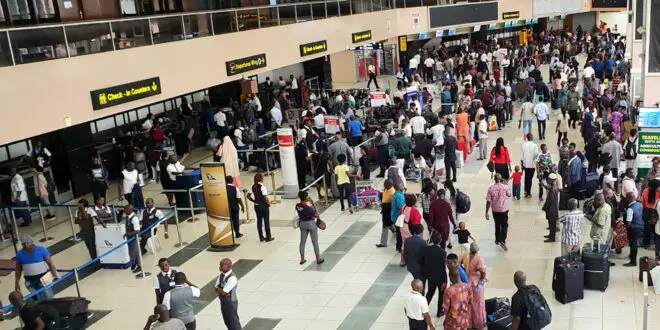
Nigerians have significantly reduced spending on foreign air travel, with a 30 per cent drop to $2.66 billion in 2024, driven largely by economic hardships and tighter visa regulations.
The sharp depreciation of the Naira, from N450.71 per dollar in early 2023 to N1,553.73 per dollar in 2024, alongside inflation soaring to 34.8 per cent, has severely eroded disposable incomes, making international travel less affordable for many.
Experts point to multiple factors fueling this decline, including the removal of Nigeria from e-visa and visa-on-arrival schemes by several countries, stricter immigration policies in developed nations, and a sharp rise in ticket prices as foreign airlines now price fares in dollars due to forex repatriation challenges.
Data from the Central Bank of Nigeria (CBN) reveals that spending on foreign air travel has fallen for two consecutive years, 18 per cent down in 2023 and another 14 per cent decline in 2024. resulting in a cumulative $1.12 billion reduction over the period.
Industry leaders attribute this trend primarily to the economic pressures impacting Nigerians’ purchasing power.
“Inflation and currency depreciation have eroded the middle class’s disposable income, making air travel a luxury many cannot afford,” said Captain Ado Sanusi, CEO of Aero Contractors.
Analysts also stated that about half of the decline is due to the weak Naira, while inflation and tighter visa regimes account for significant portions of the remaining drop.
Many Nigerians now prioritize essentials like food and housing over discretionary expenses such as international travel.
While some experts remain hopeful that improved economic conditions and forex stability could boost travel in the coming years, others warn that without meaningful changes, the downward trend may continue through 2025 and beyond.
